4 Best Beans for Runners: When and how you should eat them
Are you tired of hitting the wall during your runs? If you are searching to supercharge your performance and bounce back faster, here’s a thought: beans for runners. These tiny powerhouses might hold the key to unlocking your running potential.
Say goodbye to energy crashes and sluggish recovery. In this blog, we’re diving into the game-changing benefits of energy beans for runners. Get ready to discover a natural, nutrient-packed solution that could transform your running experience.
Ready to leave fatigue in the dust? It’s time to ask yourself: are beans good for runners?
Are Beans Good for Runners?
Beans are a great addition to a runner’s diet. Beans for runners include black beans, chickpeas, kidney beans, and navy beans. Each type of bean is filled with nutrients like complex carbohydrates, proteins, fibers, and vitamins. Beans are also low GI, meaning they digest slowly, allowing the body to produce sufficient energy during the run. Thus making them one of the best foods for runners.
Are beans good before a run? 4 Best Beans for Runners
Eating beans as a pre-run snack can be beneficial for runners. They balance carbohydrates, protein, and fiber well, giving them sufficient energy during a run. Their nutrient-packed nature makes them one of the best foods for runners. However, before adding beans to your pre-run snack, knowing the composition of different bean types will help you make a smarter choice, ultimately enhancing your running experience. This will, in turn, benefit your running.
Some are higher in protein than others, while others are higher in dietary fiber. Notable energy beans for runners include Black Beans, Chickpeas, Kidney Beans, Lentils, and Navy Beans. Although all these beans offer pre-run benefits, it’s crucial to consider which one aligns best with your desired nutrients.
Here is a breakdown of each type of bean and its unique composition:
1. Black Beans
The presence of iron, phosphorus, calcium, magnesium, manganese, copper, and zinc in black beans collectively supports the development and upkeep of bone structure and strength.
Recommended
Top Pick
Quality:
Premium-grade, carefully selected black beans.
Nutritional Value:
Rich in protein, fiber, and essential nutrients.
Versatility:
Ideal for diverse culinary applications.
Packaging:
Securely packaged for freshness and convenience.
Dietary Options:
Suitable for vegetarian and vegan diets.
2. Chickpeas (Garbanzo Beans)
It is an excellent source of protein, carbohydrates, and dietary fiber. Additionally, they offer notable amounts of manganese and zinc that are essential in supporting bone health. Incorporating chickpeas into your diet can contribute to your bones’ overall strength and maintenance.
recommended
Goya Organic Chick Peas Garbanzo Beans
15.5 Ounce
Quality:
Certified organic, premium-quality chickpeas.
Nutritional Value:
Rich in protein, fiber, and essential nutrients.
Versatility:
Suitable for a variety of culinary uses.
Packaging:
Securely packaged for freshness and convenience.
Dietary Options:
Ideal for vegetarian and vegan diets.
3. Kidney Beans
High in protein and complex carbohydrates, kidney beans provide valuable energy support. They break down slower while digesting, allowing for a more consistent energy supply while running. Moreover, they are a good source of magnesium and potassium, two crucial minerals that help maintain bone health.
Recommended
Vegan, Non-GMO, Natural Gluten-Free Bean
15 Ounce
Quality:
Premium-grade canned kidney beans.
Nutritional Value:
High in protein and fiber, low in fat.
Versatility:
Ideal for various recipes and culinary creations.
Packaging:
Securely canned for freshness and convenience.
Dietary Options:
Suitable for a range of dietary preferences.
4. Navy Beans
These beans are a rich source of protein, fiber, and essential minerals such as magnesium and potassium. Magnesium is particularly beneficial for bone health as it aids calcium absorption and contributes to bone density.
recommended
Non-GMO verified, Kosher, Vegan, Dried White Navy Beans in Bulk from Food To Live. High in Protein and Dietary Fiber.
3 Pounds
Quality:
Certified organic, premium-grade navy beans.
Nutritional Value:
High in protein and fiber, low in fat.
Versatility:
Suitable for a variety of culinary applications.
Packaging:
Securely packaged for freshness and convenience.
Dietary Options:
Perfect for vegetarian and vegan diets.
Beans are also a suitable source of nutrition for vegetarian diets. In addition to eating beans for runners. These foods are also high in protein and provide sufficient energy to sustain you while running:
Other high-protein foods that you can add to your nutrition:
- Quinoa: High-quality protein and a good source of carbohydrates.
- Chia Seeds: Provide omega-3 fatty acids, fiber, and protein.
- Nuts and Seeds: Offer healthy fats, protein, vitamins, and minerals.
- Leafy Greens: Rich in iron, calcium, and other essential nutrients.
- Whole Grains: Provide sustained energy and fiber for digestive health.
- Tofu and Tempeh: Plant-based protein sources for vegetarians and vegans.
3 Benefits of beans for runners
Beans have several benefits for runners. Whether you’re a seasoned athlete or just starting, let’s explore two advantages of including beans in your diet before a run.
1. Beans Boost Energy
For runners, beans are an excellent energy booster with their potent nutrient mix. Packed with complex carbohydrates, they provide a steady release of glucose, sustaining your energy during long runs. The protein content helps repair muscles and replenish energy post-workout.
Fiber keeps you full, while B vitamins and iron convert food into lasting energy. Magnesium supports energy production and enzymatic reactions vital for peak performance. Plus, their low glycemic index prevents energy crashes. Including various beans in your diet can fuel your runs and keep you going strong!
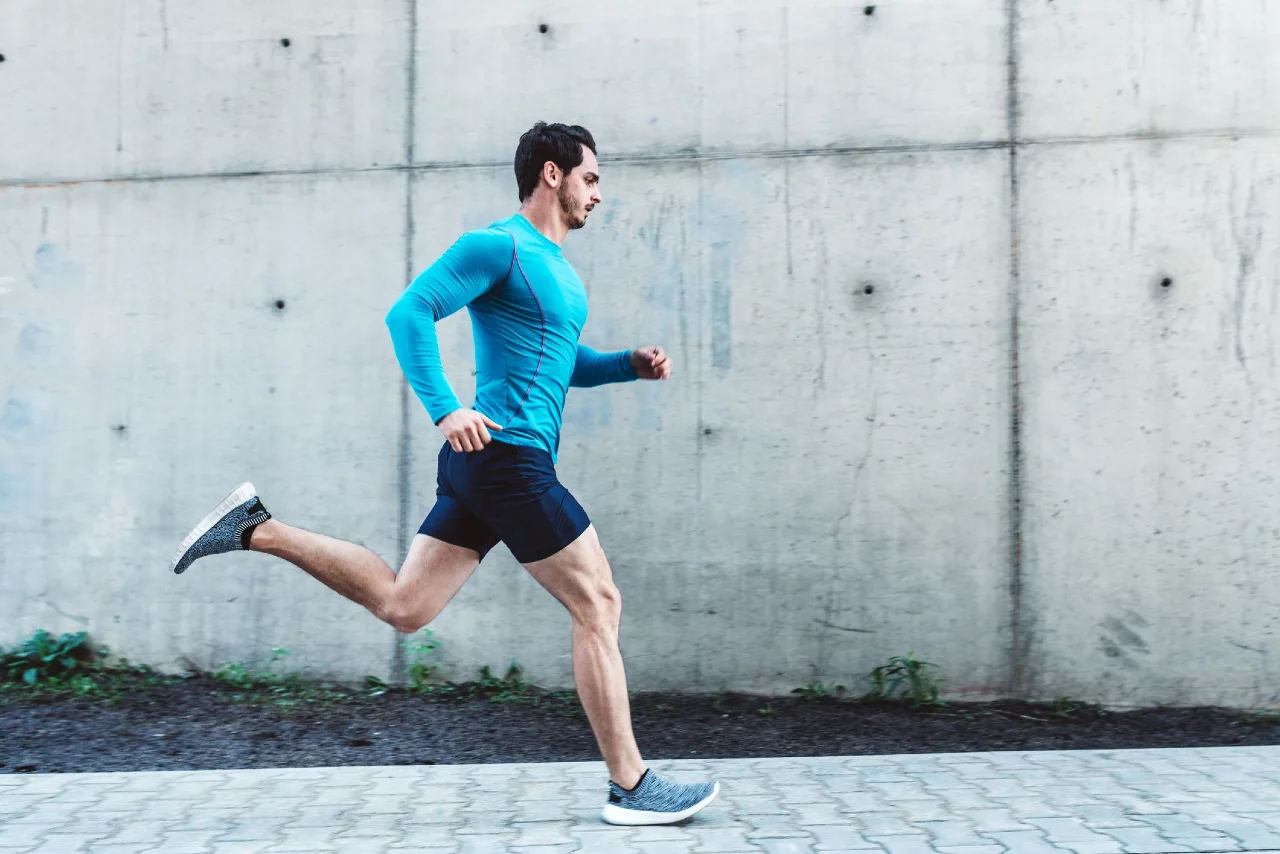
2. Aid in Muscle Recovery
Beans have a high protein composition. The protein in beans contains essential amino acids that help repair and strengthen muscles after running. It reduces muscle damage, promotes muscle recovery, and supports growth. Beans also provide energy during exercise and have anti-inflammatory properties that aid in muscle repair. Including beans in your post-run meals can enhance your muscle recovery and overall running performance.
3. Beans Strengthen Your Bones
For runners, beans are a fantastic choice to strengthen bones and support overall bone health. They are packed with essential nutrients like calcium, magnesium, and phosphorus, crucial for building and maintaining strong bones.
Magnesium in beans helps absorb calcium and aids in bone formation. The phosphorus found in beans works alongside calcium to make bones strong and rigid. Protein, another nutrient in beans, plays a role in building and repairing bones.
Additionally, the fiber in beans helps regulate minerals like calcium and magnesium, benefiting bone health. Potassium in certain beans, such as kidney beans, neutralizes acids that can deplete bone calcium. Antioxidants in beans protect bone cells from damage caused by oxidative stress and inflammation.
Subscribe to Our Running Newsletter!
Get free running tips from renowned professional athletes and discounts from top-notch brands.
Disadvantages of beans for runners
While the advantages of eating beans are significant, there are some disadvantages. Some of these disadvantages deter runners from using beans altogether. Here are the disadvantages of eating beans for runners:
While they offer significant advantages, they do come with their share of disadvantages that can deter runners. Below, we highlight these drawbacks associated with consuming beans before a run:
1. Digestive Discomfort
Beans are often linked with a common perception: their potential to cause gas in individuals due to the high fiber content in beans; some might feel bloating, resulting in digestive discomfort.
2. Hinder Nutrient Absorption
While beans provide a rich source of vitamins and other beneficial compounds, they also contain phytates and antinutrients. These elements can hinder nutrient absorption, potentially resulting in a decreased uptake of essential nutrients from the beans.
5 Tips How to eat beans for runners
How you prepare beans also makes a difference. To get the most nutrients out of the beans you eat, add them to a salad or in other meals. Here are some meals you can try:

1. Bean-Based Salads
Bean-based salads are a fantastic option for runners as they provide a powerhouse of nutrients, including protein, complex carbohydrates, fiber, vitamins, and minerals. Here are some delicious and energizing bean-based salad ideas to fuel your runs:
2. Mediterranean Three-Bean Salad
Use a mix of kidney beans, cannellini beans, and chickpeas(canned), and add chopped cucumber, red onion, Kalamata olives, cherry tomatoes, and feta cheese. Toss with a red wine vinaigrette for a Mediterranean delight.
3. Black Bean and Corn Salad
Combine black beans, sweet corn, diced bell peppers, cherry tomatoes, avocado, and cilantro. Drizzle with a lime-cumin dressing for a flavorful and refreshing salad. Remember, you can experiment by adding other foods to this recipe.
Here are some tips for preparing beans for runners:
4. Soak and cook them well.
Cooking beans can be a long process at times. To get the most nutrients out of the bean, we want to reduce the phytates and antinutrients in them. By soaking beans overnight and cooking them thoroughly, you significantly lessen the levels of phytates and antinutrients, allowing your body to absorb more nutrients.
5. Watch your Portions
Before you run, you should have a small pre-run snack. Overeating could result in digestive discomfort during the run. That said, we want our bodies to break down food efficiently in our system before and while we run to have sufficient energy. Over-eating could hinder our supply of this energy due to the volume of food to be digested and processed for fuel.
When it is better to eat beans for runners
Opinions tend to differ on when runners should eat beans. Experienced runners often recommend consuming beans after a run, especially after enduring long-distance sessions.
This strategy is geared towards minimizing possible digestive discomfort while running. Instead, these runners prefer energy-rich, easily digestible foods before their run, reserving beans for their post-run refuel.
This concern isn’t the same for short-distance athletes. Most experts agree that eating beans around 1 to 3 hours before you run is a good idea. This gives your body ample time to digest the beans and use their energy during your run.
Frequently Asked Questions About Benefits of Beans for Runners
Are beans good for endurance athletes?
Yes, beans are highly beneficial for endurance athletes. Bones are packed with proteins, fiber, vitamins, and other essential nutrients and provide valuable support for sustained energy and overall performance.
Are pinto beans good for runners?
Yes, like most beans, Pinto beans are low GI, meaning that they take longer to digest and supply energy for longer. They are also nutrient-rich, including carbohydrates, proteins, fiber, and other compounds like potassium, magnesium, folate, and vitamin B.
Summing Up the Benefits of Beans for Runners
Beans are an excellent food for runners. They are high in the necessary nutrients to sustain and provide runners with energy as they compete. As a low GI food, beans have different compositions depending on their type.
However, they are generally high in proteins and complex carbohydrates, which digest slower and provide a consistent and slow release of energy. If you use any of these energy beans for running, let us know how they work in the comment section below.
Also read:
- Is Creatine Good for Runners
- Shoulder Pain While Running
- How Many Minutes Is 2 Miles
- Aerobic vs Anaerobic Exercise
- 8-Week Beginner 10K Training Schedule
- Best Weighted Vests for Running
- Best Massage Gun for Runners
- Best Running Rain Jackets
- Best Running Tank Tops
References:
- All About Beans Nutrition, Health Benefits, Preparation and Use in Menus // NDSU: https://www.ndsu.edu/agriculture/extension/publications/all-about-beans-nutrition-health-benefits-preparation-and-use-menus
- Carbohydrates and the glycaemic index // Better Health Channel: https://www.betterhealth.vic.gov.au/health/healthyliving/carbohydrates-and-the-glycaemic-index
- An update on magnesium and bone health // PMC: https://www.ncbi.nlm.nih.gov/pmc/articles/PMC8313472/
- Dietary phosphorus in bone health and quality of life // Oxford Academic: https://academic.oup.com/nutritionreviews/article/70/6/311/1846932
- Dietary potassium intake is beneficial to bone health in a low calcium intake population: the Korean National Health and Nutrition Examination Survey (KNHANES) (2008-2011) // PubMed: https://pubmed.ncbi.nlm.nih.gov/28093633/
- How to Reduce Antinutrients in Foods // Healthline: https://www.healthline.com/nutrition/how-to-reduce-antinutrients#TOC_TITLE_HDR_2
If you have any questions or suggestions, you can contact us via email – [email protected]

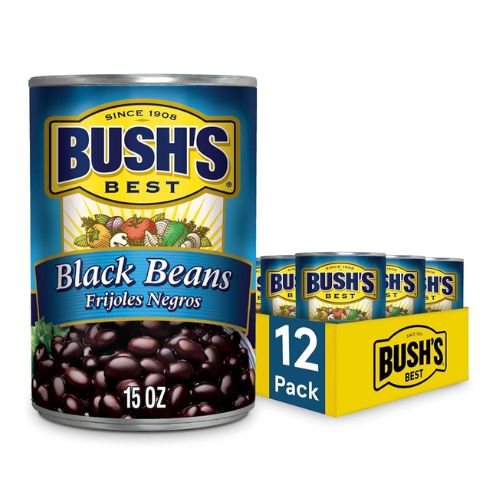
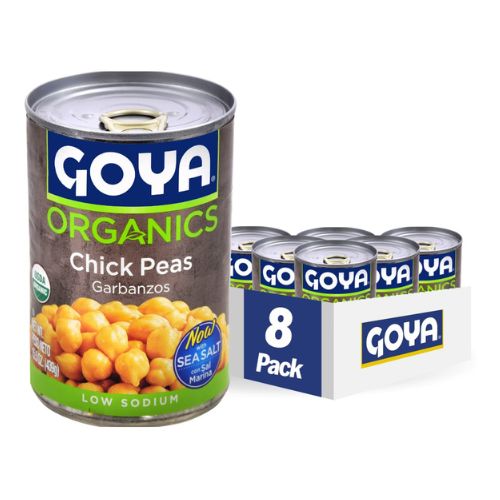
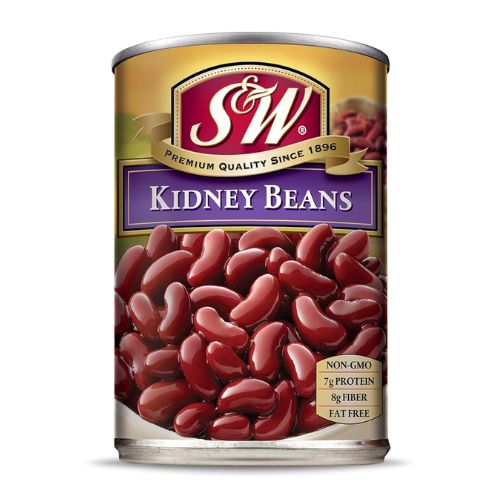
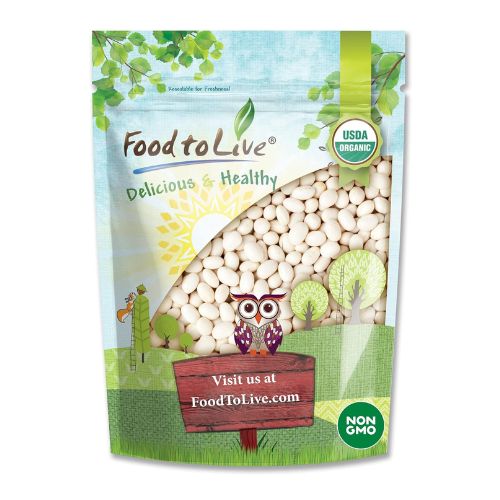






Personally, I like to combine chickpeas with meat and vegetables. But usually I can eat them for dinner, even if I plan to run tomorrow. This dish is great for my body and does not affect my running. Moreover, chickpeas are very tasty and healthy.